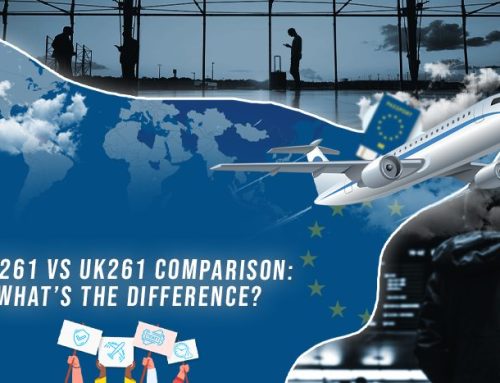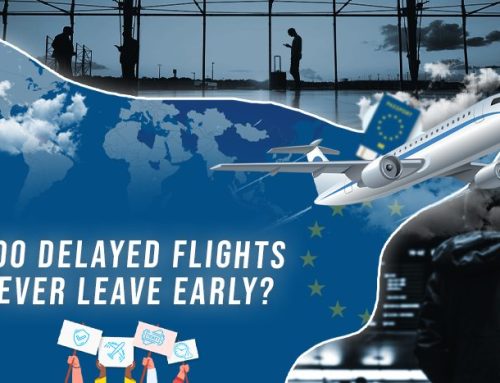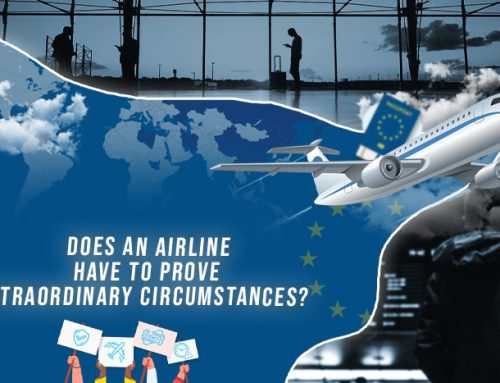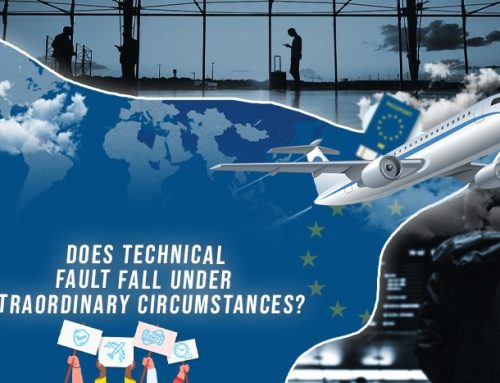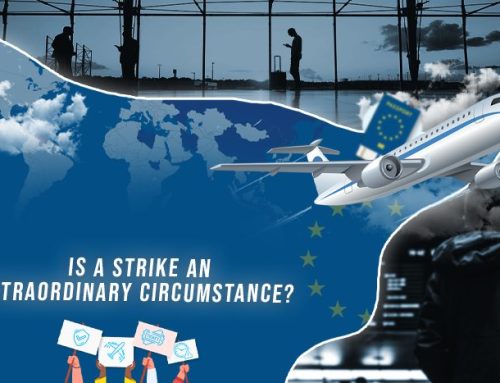While it’s not common, airlines can declare bankruptcy, leaving passengers wondering what their rights are and if they are even going to be able to travel. It’s a complicated situation, and what you are entitled to depends on the airline’s situation and how you paid for your tickets. Here’s everything you need to know about what your rights are as a passenger if an airline goes bankrupt.
Key Takeaways
- Airlines can file for bankruptcy, but this doesn’t necessarily mean immediate cessation of operations. Passengers should understand their rights and options depending on the airline’s status.
- Passengers with refundable fares have a higher chance of receiving compensation if the airline continues operations during bankruptcy. However, non-refundable ticket holders may face challenges in obtaining refunds.
- Travel insurance can be a valuable safety net for passengers in the event of airline bankruptcy. It may cover refunds, alternative accommodations, and other expenses, depending on the policy’s terms.
- Passengers who purchased tickets with credit cards have the option to dispute charges under certain consumer protection acts. This can be a viable route for seeking refunds when an airline ceases operations.
- Being stranded due to airline bankruptcy can be distressing, but passengers have alternative options, such as booking with other airlines or seeking assistance from travel insurance, embassies, or travel agencies. Communication with relevant authorities is vital to avoid visa and immigration issues during extended stays abroad.
What is Bankruptcy?
If a company is facing financial difficulties, they can file for something called bankruptcy. This is when a company admits they don’t have enough money to pay back its debts, and this is a form of financial protection.
Airlines who file for bankruptcy don’t necessarily cease operations. Instead, it can be a last-ditch effort to try to salvage their operations. If that doesn’t work, they may start liquidating their assets to pay for their debts. Once an airline starts selling off their assets, the plan to close is clear.
At the end of the bankruptcy process, the airline may not be responsible for the remaining unpaid debts. However, what about the passengers? They have different options.
If the Airline is Operating During Bankruptcy
If the airline hasn’t shut down operations, passengers are in luck. Their flights should not be impacted, and they will be able to take the trip as planned.
Some people don’t feel comfortable at the idea of doing so, especially if they are worried they will be stranded without a return trip. If you had a refundable fare, you may be able to cancel and get your money back.
Unfortunately, bankruptcy law may have an impact on your ability to receive a refund. Restrictions may be in place that prevent the airline from awarding vouchers or giving you your money back. This is a way to conserve their assets. If they are still operating, it may be best to take the trip as planned.
If you have a non-refundable ticket, you will be unable to secure a refund, regardless of the law. You are not entitled to one, and the airline is not in a position to lose more money.
If the Airline Ceases Operations
The airline may be too far gone once they file for bankruptcy. You may be able to recover some or all of your fare if you had travel insurance or used a credit card.
Travel Insurance
For large flights, people may opt to purchase travel insurance. This can cover you if you face an emergency while abroad or if something happens to your trip, including an airline filing for bankruptcy. You’ll want to read up on your policy, but you could be entitled to a full refund or alternative accommodations.
Additionally, if you need accommodations, meals, and more, your travel insurance may cover this. Be sure to keep all your receipts and submit them for reimbursement. The sooner you check in with your insurance policy once you notice an issue, the better.
Purchased with a Credit Card
If you bought your ticket using a credit card, you can file a claim with the credit card company to dispute the charge. You will need to provide important information, like your account number and documentation of the trip (ticket, itinerary, receipt, etc.). You will also need to provide proof that the airline filed for bankruptcy and that you are unable to get the service you paid for.
This should be approved under the Fair Credit Billing Act or section 75 under the Consumer Credit Act. There are different protections in place for customers who aren’t able to get what they paid for. Typically, you will get a refund, but it may take time to process it.
This protection may be in place for debit cards depending on the bank, so be sure to contact your bank to see what your options are. You must file all claims no more than 60 days after the date on your monthly statement that had the charge. If the bankruptcy wasn’t official at that time, then you may have some flexibility.
What Happens If You Are Stranded?

If the airline ceases operations immediately, you may find yourself in need of a return trip. While this is stressful, you are not alone. In this case, you have a few different options.
You can purchase a ticket from another airline or check with them to see if they will honor your existing ticket. If the airline was a partner of your airline, you may have better odds. Some will allow you to travel on stand-by, while others may offer discounts to impacted passengers.
If you have travel insurance, see if they can help land you on the next flight home at no additional charge. There are also embassies and other travel offices and agencies that can help citizens who are stuck abroad. Make sure to check in with them if you believe your passport or travel visa may become an issue.
It may take some time for passengers to save up for another fare if they need to purchase one, so it’s important to be transparent with your country’s travel office so you don’t find yourself facing fines or deportation for overstaying your visa.
Conclusion
You have rights if an airline files for bankruptcy, and you had purchased a ticket with them. The best-case scenario is that the airline is operating as normal, and you can still take your trip as planned. Otherwise, you may face some complications.
You may be unable to obtain a refund because the airline’s assets have been frozen. If this is the case, you can file a claim with your credit card company to dispute the charge. In some cases, you may simply be out of the money.
Thankfully, it’s not common for airlines to file for bankruptcy, so it may not be an issue. The best advice is to book with credit cards. You can pay it off in full, but in the case of an emergency, you can dispute the charge for a full refund, which is your best option.
Frequently Asked Questions
-
Will I get a refund if the airline I booked with files for bankruptcy?
Whether you will get a refund depends on the airline’s specific situation and your ticket type. If the airline is still operating during bankruptcy, refundable ticket holders might have a chance to receive a refund. However, if the airline has ceased operations, your options for a refund may be limited. Travel insurance or purchasing the ticket with a credit card might offer better chances of getting a refund.
-
Can I still travel as planned if the airline is operating during bankruptcy?
Yes, if the airline is operating during bankruptcy, your flights should not be impacted, and you can travel as planned. However, some passengers may feel uncomfortable with the situation and may explore other options. Refundable fare holders may be able to cancel and get their money back, but bankruptcy law might restrict the airline from providing refunds or vouchers.
-
What should I do if I have a non-refundable ticket and the airline ceases operations?
If the airline ceases operations and you have a non-refundable ticket, your chances of obtaining a refund directly from the airline are slim. In such cases, your best course of action is to check if you have travel insurance or if you purchased the ticket with a credit card. These avenues might provide opportunities for compensation.
-
Does travel insurance cover losses if the airline goes bankrupt?
Travel insurance may cover losses resulting from an airline’s bankruptcy, but this depends on the specific terms and coverage of your policy. Some travel insurance policies include protections for trip cancellations due to airline bankruptcies, providing full refunds or alternative accommodations. It’s essential to read your policy carefully to understand what is covered.
-
How can I dispute a charge with my credit card company if the airline fails to provide the service I paid for due to bankruptcy?
To dispute a charge with your credit card company, you should contact them as soon as you become aware of the issue. Provide them with essential information, such as your account number and documentation of the trip (ticket, itinerary, receipt). You will also need to show proof that the airline filed for bankruptcy and that you are unable to receive the service you paid for. Depending on your location, this dispute process may fall under the Fair Credit Billing Act or Consumer Credit Act, offering protections for customers facing such situations.



